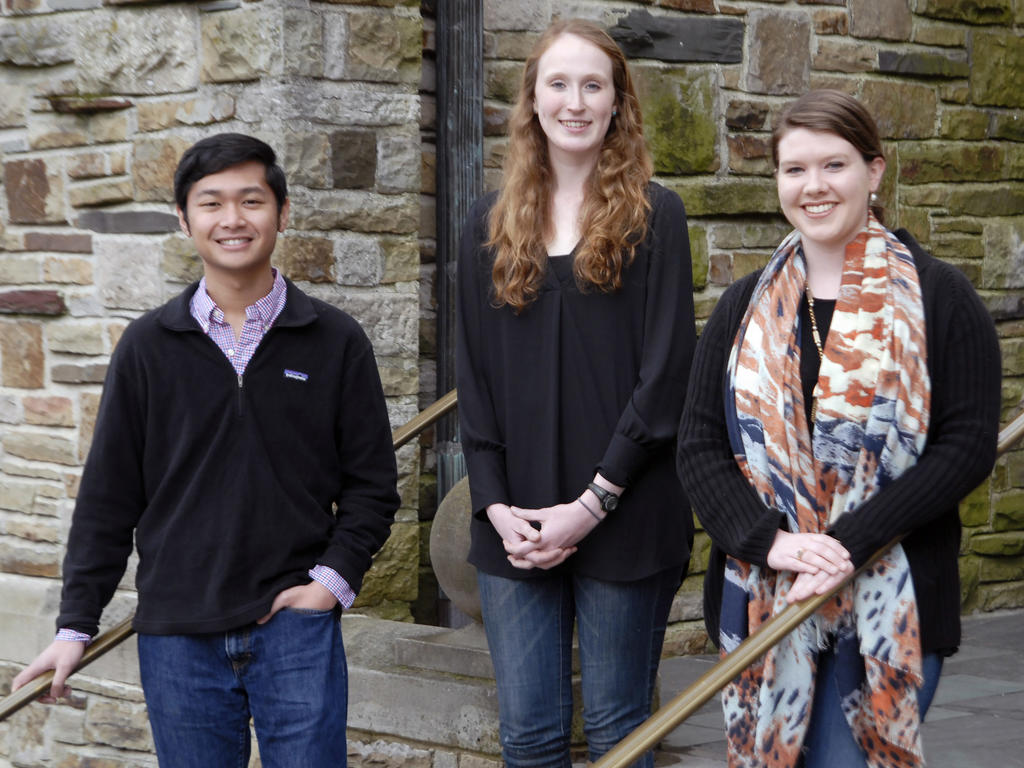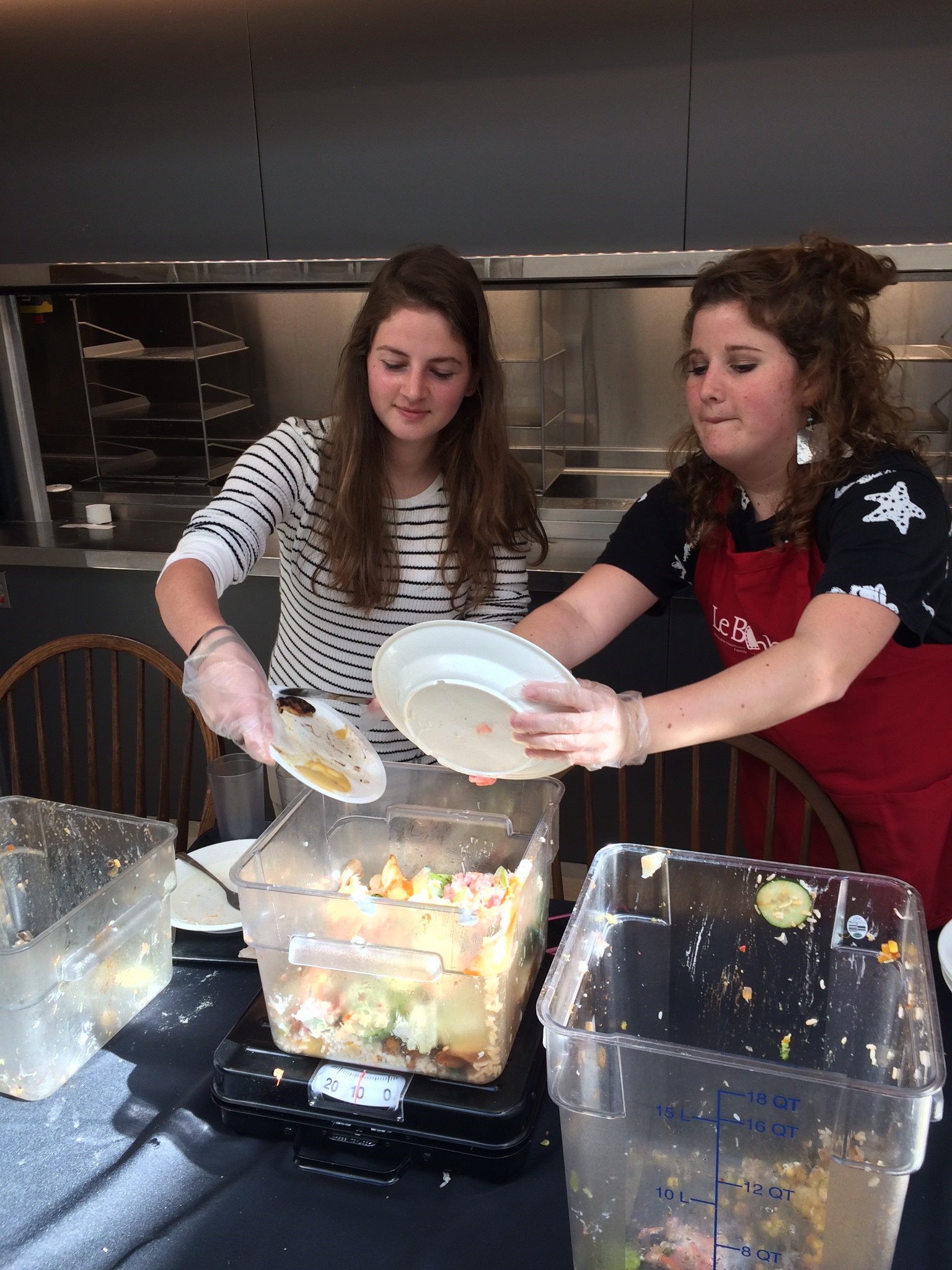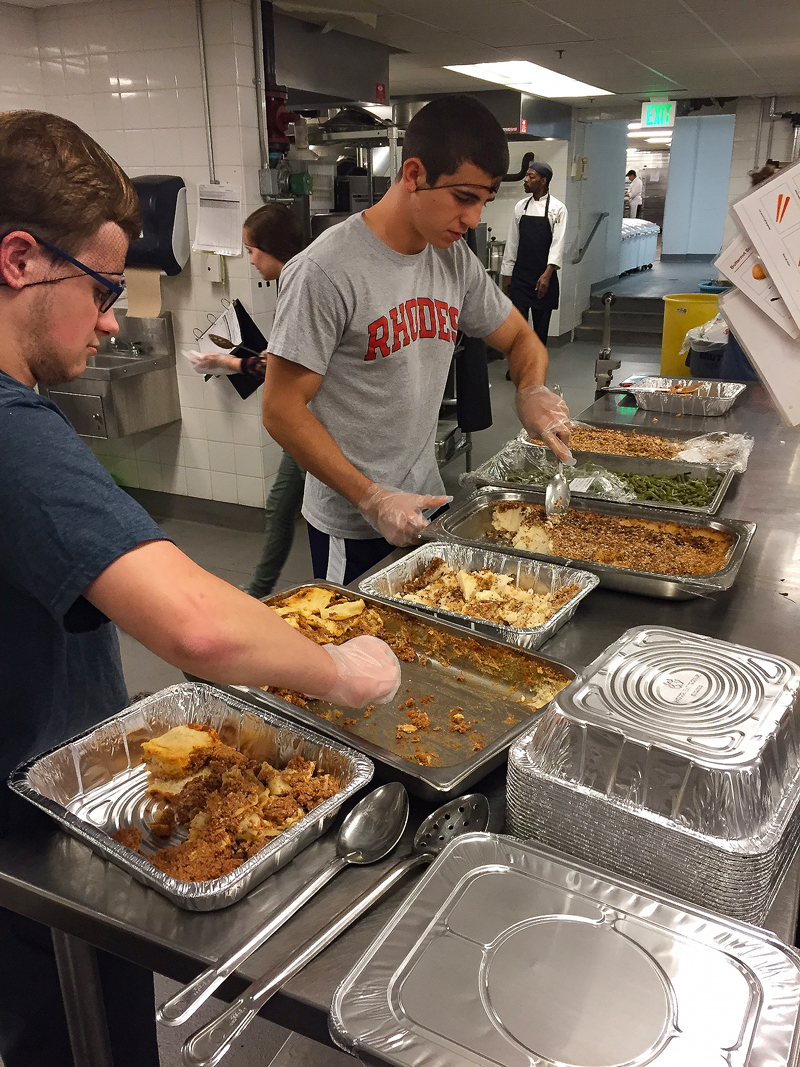
Founded in 2011, the Food Recovery Network (FRN) is a national organization that partners with colleges to combat food waste and food insecurity. Every year in the United States, around 31% of prepared food—upwards of 65 million tons—is left uneaten. The overarching goal of the FRN program is to collect all food that would normally go to waste and to donate it to hunger relief initiatives within a college’s community. In the 5 years since its inception, FRN has opened up 172 chapters and recovered over 1 million pounds of food.
At a Bonner Scholarship convention, Adil Khan ’16 heard about the FRN for the first time. Excited about the program, Adil quickly recruited campus leaders to help open a Rhodes chapter. Today, the Rhodes FRN leadership team is comprised of Adil, Ellery Ammons ’16, Gene Lamanilao ’16, Catherine Miller ’16, and Tate Mulligan ’18. “Over the summer we worked on the application, we talked with the national representatives, got the constitution down, and became a student organization. We’ve just grown from there,” Catherine explains.
At Rhodes, leftover food from the Refectory is collected, weighed, and recorded before it is driven to one of three distribution locations. The Rhodes chapter hosts recovery days on Tuesdays and Fridays and delivers to local distribution hubs St. John’s Methodist Church, First Congregational Church, and St. Vincent DePaul Church.
Gene, who was asked to join the Rhodes FRN leadership council because of his experience as service coordinator of the Rhodes soup kitchen, heads Tuesday recoveries. Around 3 p.m. each Tuesday, Gene and his crew of volunteers go to the kitchen of the refectory and transfer unused food into portable containers that are then driven to St. John’s on Peabody Ave. “It directly engages the students with helping out. We weigh the food as well, and report those numbers to the national tracking form,” says Gene. “It’s a very rewarding and fulfilling way to volunteer if you’re strapped for time. It only requires thirty minutes, and every part of the process is important.”
Tuesday volunteers have the option to simply help transfer the food into portable containers and deliver the food to the distribution hubs, or to stay and help serve the food at St. John’s. On Fridays, St. Vincent DePaul and First Congregational alternate as delivery spots. In the year the Rhodes chapter has been active, over 3,000 pounds of food has been recovered from the Refectory.
In the coming years, the Rhodes chapter hopes to expand its outreach and its impact. “There’s definitely room for expansion,” says Gene. “We hope to add more sites, have more recovery days, and increase our volunteer base. The ultimate goal is for Rhodes to become 100% waste-free.”
By Kenneth Piper ’17

